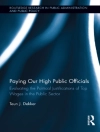‘How to be Good?’ is the pre-eminent question for ethics, although one that philosophers and ethicists seldom address head on. Knowing how to be good, or perhaps (more modestly and more accurately) knowing how to go about trying to be good, and the ways in which it is pointless or self-defeating to try to be good, is of immense theoretical and practical importance. And what goes for trying to be good oneself, goes also for trying to provide others with ways of beinggood, and for trying to make them good whether they like it or not. This is what is meant by ‘moral enhancement’. There are many proposed methodologies or technologies for moral enhancement. Some of them are ancient and/or familiar: we may attempt moral enhancement by setting a good example, by good parenting, by education or training, by peer pressure, by telling stories with a moral, in words or in pictures, and so on. We can imbibe substances with mood changing or motivational effects. We can also use medical, biological, or other scientific means; we can search for and deploy chemicals, or biologicalor molecular agents, which we believe will change people for the better; and we can modify the environment to make bad outcomes of all sorts less likely. We can experiment with political and social systems, institutions, and arrangements designed to make the world a better place or people betterpeople. The question whether and to what extent moral enhancement is possible is the subject of this book.
John Harris
How to be Good [EPUB ebook]
The Possibility of Moral Enhancement
How to be Good [EPUB ebook]
The Possibility of Moral Enhancement
Koop dit e-boek en ontvang er nog 1 GRATIS!
Taal Engels ● Formaat EPUB ● Pagina’s 192 ● ISBN 9780191017247 ● Uitgeverij OUP Oxford ● Gepubliceerd 2016 ● Downloadbare 3 keer ● Valuta EUR ● ID 5280409 ● Kopieerbeveiliging Adobe DRM
Vereist een DRM-compatibele e-boeklezer












